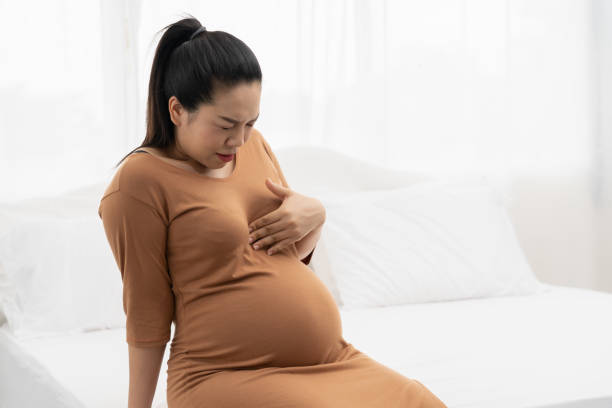Pregnancy is a time of tremendous physical changes, and as a woman's body adapts to nurture and grow new life, one of the critical areas affected is circulation. With increased blood volume, growing pressure on blood vessels, and the changing distribution of weight, maintaining proper circulation becomes a priority for maternal and fetal health. However, pregnancy can often bring about challenges such as swelling, leg cramps, and even more serious issues like varicose veins or blood clots, all related to circulation. The pregnancy pillow is one of the lesser-discussed yet highly effective tools to combat these circulation issues.
Pregnancy pillows are designed for comfort and can help alleviate circulatory issues by encouraging optimal sleep positions and relieving pressure on key areas of the body. In this article, we will explore the science behind circulation during pregnancy, the potential risks of poor circulation, and how pregnancy pillows can improve blood flow and overall health for both the mother and baby.

Understanding Circulation During Pregnancy
Circulation plays a vital role during pregnancy. As the body supports both the mother and the growing fetus, blood volume increases by approximately 30-50%. This increase is necessary to ensure that the developing baby receives enough oxygen and nutrients via the placenta. Additionally, the mother's body needs sufficient blood supply to meet her increased metabolic needs and to support the growth of the placenta, uterus, and breasts.
However, increased blood volume and growing babies can put significant pressure on the body’s circulatory system. As the uterus expands, it begins to press on the veins in the lower body, especially the inferior vena cava, which is the large vein responsible for carrying blood from the lower part of the body back to the heart. This can slow down blood flow and lead to common symptoms such as:
- Swelling (edema): Pregnant women often experience swelling in their legs, feet, and hands due to the increased pressure on veins.
- Varicose veins: The added pressure on the veins can cause them to swell and become more visible, which can be uncomfortable and sometimes painful.
- Leg cramps and discomfort: Poor circulation can contribute to muscle cramps and overall discomfort, especially in the legs.
- Dizziness or fainting: In some cases, reduced blood flow can lead to dizziness or fainting when standing or changing positions too quickly.
Maintaining good circulation is important not only for the mother's comfort but also for the baby’s development. Reduced circulation can potentially lead to lower oxygen levels and reduced nutrient flow to the baby, increasing the risk of complications.
The Risks of Poor Circulation During Pregnancy
Poor circulation during pregnancy can lead to several uncomfortable or even dangerous complications, including:
- Deep vein thrombosis (DVT): DVT is a condition where blood clots form in the deep veins of the legs. Pregnant women are at an increased risk of DVT due to hormonal changes that make blood more prone to clotting and the increased pressure on the veins. If a blood clot breaks loose and travels to the lungs, it can cause a life-threatening condition known as a pulmonary embolism.
- Varicose veins and spider veins: Poor circulation can contribute to the development of varicose veins, which are swollen, twisted veins that often appear on the legs. Although varicose veins are usually not dangerous, they can cause discomfort, itching, and swelling. In severe cases, they may lead to ulcers or skin changes.
- Swelling and edema: Excessive swelling in the feet, ankles, and hands can occur when the body's tissues retain too much fluid. While mild swelling is common during pregnancy, severe edema can be a sign of preeclampsia, a potentially serious condition that involves high blood pressure and damage to other organs.
- Reduced oxygen and nutrient flow to the baby: In cases of significantly poor circulation, the baby may receive reduced oxygen and nutrients, which could potentially affect growth and development.
Clearly, maintaining good circulation during pregnancy is not just a matter of comfort; it is a matter of health for both mother and baby. This is where pregnancy pillows can play an important role.

How Pregnancy Pillows Improve Circulation
Pregnancy pillows are specially designed to provide support and promote proper sleep positioning, which can greatly improve circulation. Let’s take a closer look at the ways in which pregnancy pillows help:
1. Encouraging Left-Side Sleeping
One of the key recommendations for improving circulation during pregnancy is sleeping on the left side. This position is thought to be the best for circulation because it reduces pressure on the inferior vena cava, allowing blood to flow more freely back to the heart from the lower body. When you sleep on your back or right side, the growing uterus can compress the vena cava, reducing blood flow and potentially causing dizziness, swelling, or discomfort.
Pregnancy pillows, especially full-body pillows or U-shaped pillows, are designed to support the body in a side-sleeping position. They can be placed between the legs and under the belly to provide support and prevent the mother from rolling onto her back during the night. By keeping the mother in a comfortable side-sleeping position, pregnancy pillows help to promote better circulation and reduce the risk of vena cava compression.
2. Reducing Pressure on the Legs and Hips
Another common problem during pregnancy is increased pressure on the legs and hips, which can contribute to swelling, discomfort, and poor circulation. Pregnancy pillows can help to relieve this pressure by providing support in areas that need it most.
For example, placing a pillow between the legs can help to align the hips and reduce strain on the lower body, allowing for better blood flow. Additionally, some pregnancy pillows are designed to support the back and shoulders, reducing the overall strain on the body and helping to prevent circulation problems caused by poor posture or misalignment during sleep.
Monique Maitland from The Middee Society frequently emphasizes the importance of positioning during sleep to maintain proper circulation during pregnancy.
3. Elevating the Legs
In some cases, elevating the legs can help to improve circulation and reduce swelling. Pregnancy pillows can be used to gently elevate the legs while sleeping or resting, which encourages blood flow back to the heart and reduces the risk of fluid buildup in the legs and feet. This can be particularly helpful for women who experience significant swelling or discomfort in the lower body during pregnancy.
Some pregnancy pillows, such as wedge pillows, are specifically designed to provide elevation and support. These pillows can be placed under the legs, hips, or back to help improve circulation and reduce strain on the body.
4. Supporting the Belly and Back
As the baby grows, the added weight of the uterus can put pressure on the lower back and abdomen, making it harder for blood to flow freely. Pregnancy pillows provide support to the belly and back, reducing the strain on these areas and helping to improve overall circulation.
By supporting the belly, pregnancy pillows help to lift some of the weight off the lower body, which can alleviate pressure on the veins and improve blood flow. Supporting the back also helps to reduce strain and discomfort, which can contribute to better sleep and improved circulation. Jess Kostos, a well-known women’s health physiotherapist, highlights the importance of physical support during pregnancy to alleviate pressure on key areas like the back and abdomen

Types of Pregnancy Pillows and Their Benefits for Circulation
There are several different types of pregnancy pillows, each with its own unique benefits for improving circulation. Understanding the different options can help you choose the right pillow for your needs:
- Full-Body Pillows (U-Shaped or C-shaped): These large, all-encompassing pillows are designed to provide support to the entire body, including the head, neck, back, belly, hips, and legs. Full-body pillows are ideal for promoting left-side sleeping, as they help to keep the body in a comfortable, aligned position throughout the night. By providing support to multiple areas of the body, full-body pillows can help to reduce pressure on the veins and improve circulation.
- Wedge Pillows: Wedge pillows are smaller, triangular-shaped pillows that can be placed under the belly, back, or legs for targeted support. Wedge pillows are ideal for elevating the legs or providing extra support to the back and belly, both of which can help to improve circulation.
- Cylindrical or J-shaped pillows: These pillows are designed to wrap around the body, providing support to the head, neck, and legs. They are smaller and more compact than full-body pillows but still offer significant support for side sleeping and reducing pressure on key areas of the body.
Additional Tips for Improving Circulation During Pregnancy
In addition to using a pregnancy pillow, there are several other strategies that pregnant women can use to improve circulation:
- Exercise regularly: Gentle exercise, such as walking or swimming, can help to promote blood flow and reduce the risk of circulation problems. The MOVE with The Mama Physio program offers safe and effective pregnancy exercises that can help improve circulation.
- Stay hydrated: Drinking plenty of water helps to keep the blood flowing smoothly and reduces the risk of swelling and dehydration.
- Wear compression stockings: Compression stockings can help to reduce swelling and improve circulation in the legs. They are especially helpful for women who spend long periods sitting or standing.
- Take breaks to elevate your feet: If you spend a lot of time sitting, take regular breaks to elevate your feet and encourage blood flow back to the heart.
- Practice good posture: Maintaining good posture throughout the day can help to reduce pressure on the veins and improve circulation. This includes sitting up straight and avoiding crossing your legs.
Conclusion
Maintaining good circulation during pregnancy is essential for both the mother and the baby. Pregnancy pillows can play a crucial role in improving circulation by encouraging proper sleep positioning, reducing pressure on key areas of the body, and providing the support needed to alleviate discomfort. Whether you choose a full-body pillow, a wedge pillow, or a smaller support pillow, incorporating a pregnancy pillow into your sleep routine can make a significant difference in your overall comfort and health.
By understanding the importance of circulation and using tools like pregnancy pillows to support your body, you can help ensure a healthier, more comfortable pregnancy for you and your baby.



